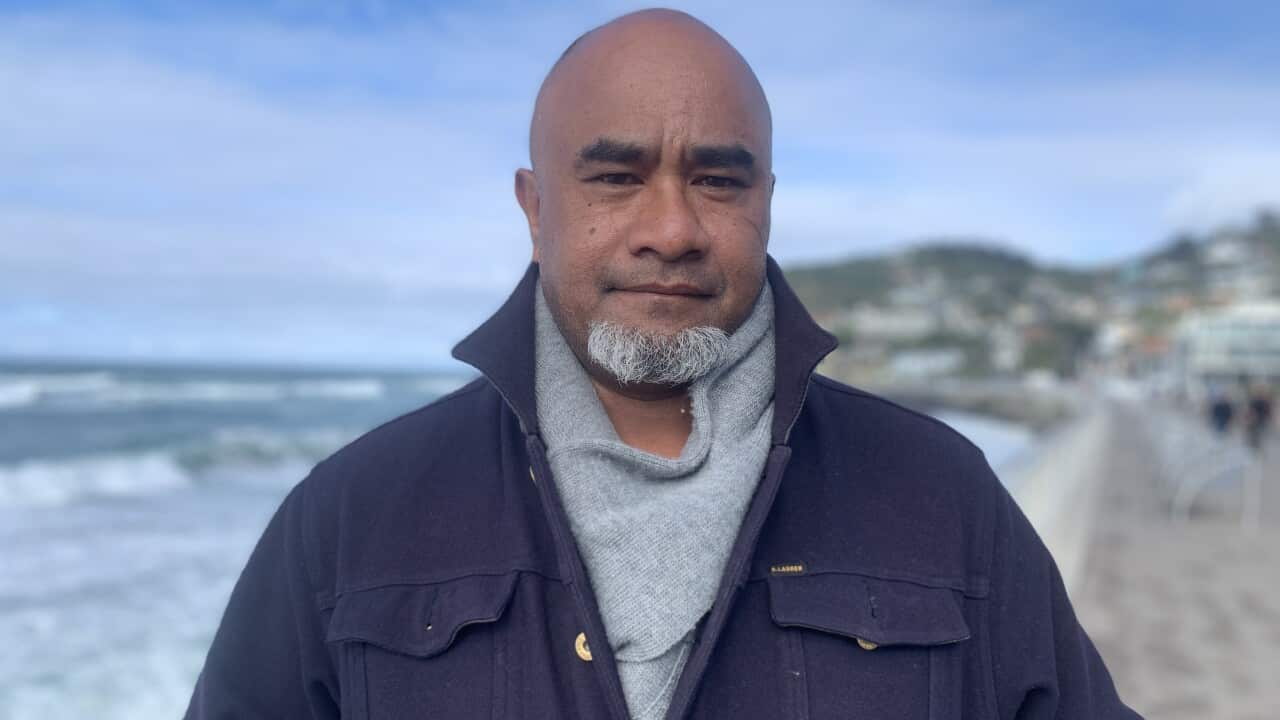This article contains references to domestic violence.
The Morrison government’s push to enshrine stronger visa cancellation powers has passed the lower house of parliament, but its refusal to negotiate changes to the laws means its fate in the Senate remains unclear.
The move marks the latest effort to bring forward the laws, which have previously been defeated in the Senate, facing opposition from Labor and the Greens.
The Opposition on Wednesday did not oppose the government’s move to introduce the laws to the House of Representatives, but has flagged it could still seek changes in the Senate.
The measures would give the government greater discretionary powers to refuse or cancel visas of foreign nationals with a criminal history based on their conviction, rather than their prison sentence.
Immigration Minister Alex Hawke had earlier fronted a press conference in an attempt to apply further pressure to wedge Labor over the bill.
“The Morrison government will not negotiate over community safety and the safety of women and children," he told reporters.
"We will not negotiate over serious and violent crime."
Mr Hawke says he believes crossbench support can be secured for the laws and will attempt to drive them through with only two Senate sitting days remaining before an election is held by May.
Asked whether the bill would be taken to a vote in the Senate he replied: “We sure will.”
Under its Strengthening the Character Test bill, foreign nationals could have visas refused or cancelled if they have been convicted of a crime that's punishable by more than two years in prison.
The government says the laws would address a gap in existing legislation by allowing the character test to be applied to individuals who have received less than 12 months imprisonment for their crimes.
It says this would include designated offences such as stalking, domestic violence, assault of police officers and child abuse-related convictions or possessing a weapon.
Labor had previously raised concern over why the measures are needed, given the immigration minister already holds broad discretionary powers to cancel and refuse visas.
Shadow home affairs minister Kristina Keneally said Labor would not oppose the bill’s road to the Senate, but wants to continue to negotiate changes to the bill.
“The question here is does the government want a fix or do they want to fight,” she told reporters.
“Let's call a spade a shovel. This is a desperate government that has been trying to run a wedge spear campaign to distract from their incompetence.”
SBS News understands Labor is seeking amendments to remove the capacity for the laws to be enforced retroactively from the date of enforcement, as well as reducing the risk that it could capture low-level offending, by using the existing definition of “substantial criminal record” in the Migration Act.
The government’s latest version of the bill includes an amendment specifying that a designated offence would be defined as one that substantially contributed to bodily harm or harm to another person’s mental health, or if it involves family violence to avoid low-level offending being included.
Opposition immigration spokesperson Andrew Giles later said although Labor supported the bill, the government still needed to explain what it would allow the minister to do that they could not do already.
"The potential unintended consequences of the bill must be addressed," he said.
Minister Hawke thanked the opposition for its "lukewarm" support.
"This is something we have been consistent on pursuing for the last 1200 days for important reasons," he said.
"It is not a racist bill ... our entire immigration policy is non-discriminatory and crime doesn't have any nationality.”
But Greens Leader Adam Bandt said Labor was backing a bad bill from a bad government who wanted to be above the law.
"This bill will not make this country safer. The government already has extensive powers under the legislation - godlike powers - to deport people on the basis of character," he said.
"In those situations, where someone has really done something so horrendously wrong that they are a threat to the Australian community, the government has already got the power to do something about it."
In Australia, most visa cancellations are made under sector 501 of the Migration Act.
Through these powers, the government can cancel visas of non-citizens over character concerns as well as for criminal convictions, or if they are considered part of a group suspected of wrongdoing.
Migration law specialists have consistently opposed the government’s attempt to bolster its visa powers through this latest measure, first proposed in 2018.
Jana Favero, director of advocacy and campaigns at the Asylum Seeker Resource Centre, said the laws would "explicitly subject non-citizens and refugees to a separate legal system".
“It is a racist law, pure and simple,” she said.
“This law is nothing more than a political stunt, one that will hurt families and undermine the rule of law.”
Sanmati Verma, migration lawyer and deputy chair of the Visa Cancellation Working Group, also said the laws risked endangering migrant women and children.
“It fundamentally endangers migrant families, it fundamentally comes over the top of the outcomes delivered by specialist courts and exposes women and children who hold dependent visas,” she said.
Mr Hawke responded to these concerns during his press conference saying his department would work with victims of family violence to ensure this did not happen.
“If they are victims of domestic violence they will receive another visa or a pathway to Australia,” he said.
In September 2019 and October 2021, Labor and the Greens voted against an earlier version of the bill in the Senate.
With AAP
If you or someone you know is impacted by family and domestic violence, call 1800RESPECT on 1800 737 732 or visit . In an emergency, call 000.





